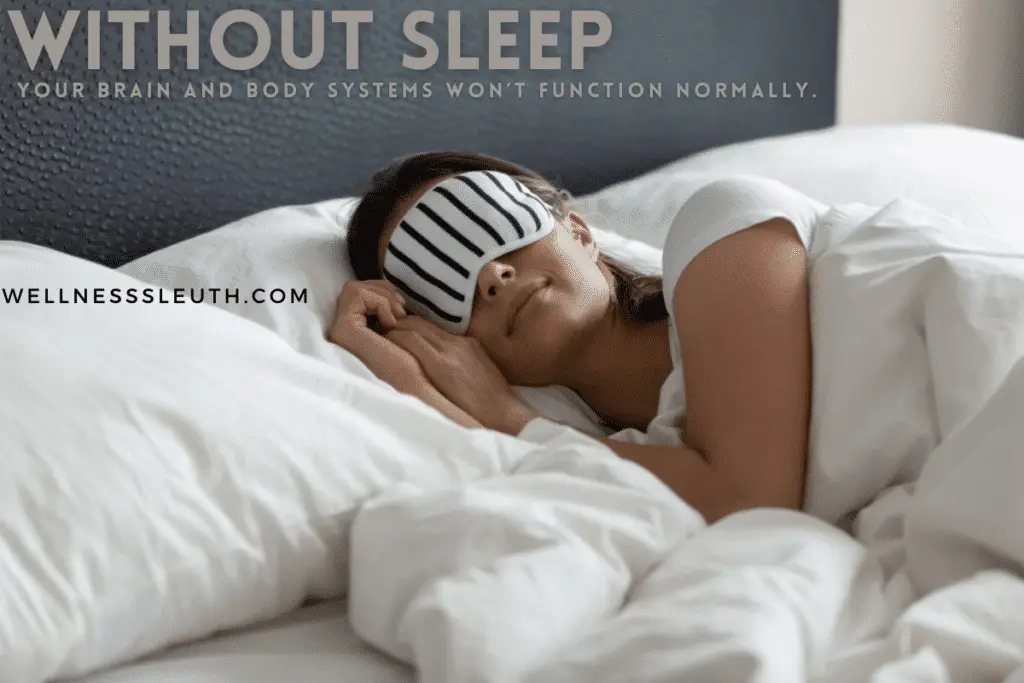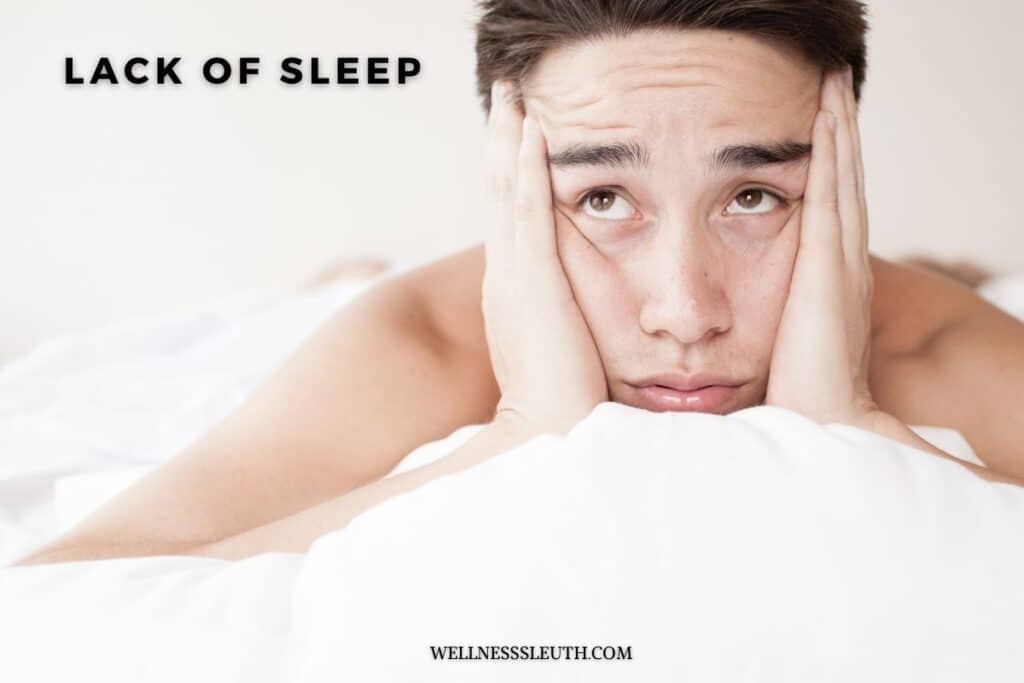Ways to prevent illness

How can I get Insurance, against getting sick?
There are many different ways to prevent illness, both big and small. One of the most effective ways to avoid getting sick is by washing your hands often with soap and water. By avoiding common germs, you can keep yourself healthy for a long period of time. However, other preventative measures include maintaining good sleep habits, exercising regularly, and getting enough fruits and vegetables in your diet. These can prevent illness in the long run, so it's always best to try them before anything else.
The following suggestions are like insurance. Insurance that if you do get sick or catch a cold, you will already have a healthy immune system in place, that will ensure you get over quickly, and with less effect.
How important is sleep?
A good night's sleep is key to keeping healthy. If you aren't well-rested, your immune system can be weak and unable to deal with everyday infections in the body. Getting at least eight hours of sleep every night helps the body stay strong throughout the day.
The best time to start getting your sleep is between 8 pm and 12 am.
Tips on how to get some sleep
It's late, you're tired, but sleep just won't come. You toss and turn, willing yourself to drift off, but it seems impossible. If you've ever found yourself in this position, you're not alone. According to the National Sleep Foundation, around 30% of Americans report struggling with insomnia at least a few nights per week. But the good news is that there are some simple things you can do to promote better sleep.

First, create a calming bedtime routine and stick to it as much as possible. This could involve taking a warm bath, reading a book, or spending a few minutes writing in a journal. The goal is to signal to your body that it's time to wind down for the night. Next, make sure your bedroom is conducive to sleep. Keep the lights low and the temperature cool. And if outside noise is keeping you up, consider investing in a white noise machine or earplugs. Finally, avoid looking at screens (including your phone) for at least an hour before bedtime. The blue light emitted by screens can disrupt your body's natural sleep rhythm and make it harder to fall asleep.
By following these simple tips, you can encourage your body and mind to relax and
Exercising regularly.
Health benefits that come from exercising regularly.
Exercise may seem daunting, but the benefits are innumerable. One of the most important is that exercise can strengthen your immune system. If you exert a certain amount of energy every day, your body will be able to take on everyday germs and viruses more effectively. It's important to get at least thirty minutes of exercise every day in order to stay healthy for an extended period of time.

What type of daily exercise are good for maintaining good health?
Daily exercise is very important for maintaining good health, especially if it's for at least thirty minutes every day. The more you get, the healthier your body will be. This benefits you by strengthening your immune system and helping you fight off everyday infections.
Exercise has numerous benefits that can help improve both your physical and mental well-being also. It can make you stronger, more alert, and happier. There are many different types of exercises you can do to improve your health including walking, jogging, biking, running, swimming, dancing, and even hiking.
For many different areas of health
How does exercise benefit health?
Exercise is one of the most important things to promote health. It helps strengthen your immune system and gives you energy throughout the day. However, this only works if you exercise every day for at least 30 minutes. If you don't, your body won't be able to fight off infections as well and will catch more diseases than normal. Exercise is not to be overdone. You should always feel refreshed, calm, and with the energy to continue throughout the day. Be aware that exercising at night, might cause you problems in falling asleep.

Exercise has numerous benefits for many different areas of health. It can increase your metabolism, promote weight loss, reduce the risk of heart diseases and other conditions, lower blood pressure, reduce stress levels, ease depression, sleep better and increase happiness. If you are looking to improve your well-being through exercise, these are just some of the benefits that come from following an exercise routine. Exercise can also be insurance against Diabetes.
Eat your fruits and veggies.
Nobody likes eating their vegetables, but they are some of the most nutritious foods available on the market today! Fruits and vegetables carry essential vitamins and minerals that help the body stay strong so it can fight off infection. It's important to eat at least five servings of fruits or vegetables.
The trick to eating vegetables is the way they are seasoned. Well, seasoned vegetables are very tasty.
SLEEP and its importance.

What are circadian rhythms in the sleep of humans?
Circadian rhythms are physical, mental, and behavioral changes in organisms that are governed by the daily light-dark cycles. These cycles are off of solar time and typically 24 hours in length. Duration of sleep is very important, more important is the time chosen to sleep.
How is your immune system affected by sleep deprivation?
The relationship between sleep deprivation and the immune system is highly correlated. The more you get, the healthier your immune system is. Lack of sleep can lead to lower levels of cortisol, which is a stress hormone that also helps regulate the immune system. This leads you to have diminished immunity to viruses or illnesses, ultimately making you sick more often if you are sleep-deprived. Stress is also one of the leading factors for Anxiety.
How does sleep affect the brain?
It’s no secret that a lack of sleep can affect how we feel mentally and physically. We may be irritable, have difficulty concentrating, and feel fatigued. This is because lack of sleep can take a toll on the brain. Studies have shown that lack of sleep can impair brain function and affect our mood, decision-making abilities, and reaction time. In addition, lack of sleep can lead to cognitive decline and memory problems. Furthermore, sleep deprivation has been linked to psychiatric disorders such as depression and anxiety. So if you’re not getting enough sleep, it’s important to try to improve your sleep habits. Otherwise, you may be putting your mental health at risk.

Sleep affects the brain by allowing it to recover from a strenuous day's worth of activity. Without sleep, your brain won't be able to react quickly enough or with accuracy because it won't have the energy required to do so. Additionally, without proper sleep, you can experience mood swings and become unproductive in certain tasks.
Conclusion:
When you consider what is covered by critical illness insurance. You would be more inclined to come up with your own Good Habits and daily exercise routines. Also by following these simple tips for healthy living you can safeguard yourself from illness. By staying active through exercise, cleaning your hands often, and practicing healthy sleep habits you are doing everything you can do to stay healthy. Without these practices, the body becomes more vulnerable to illness and infection so it is important to follow through with them. Most importantly, they are easy to follow by anyone at any time.








Leave a Reply
You must be logged in to post a comment.